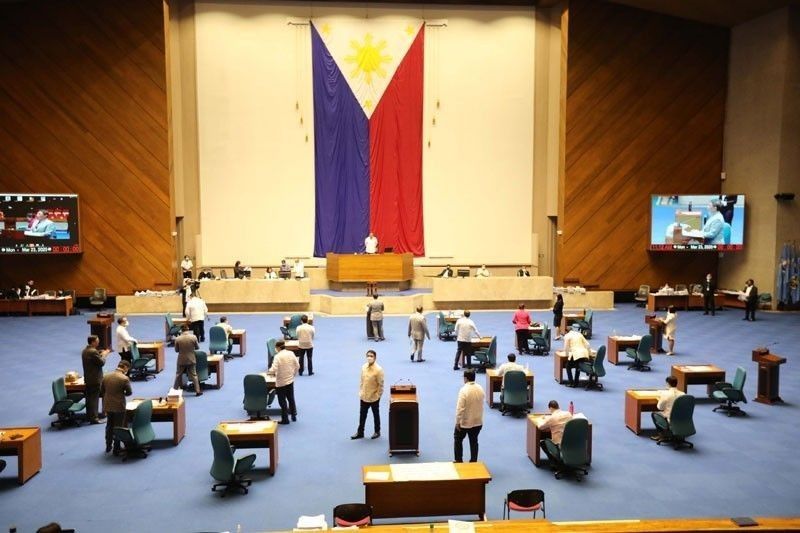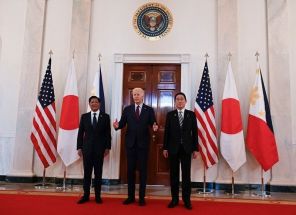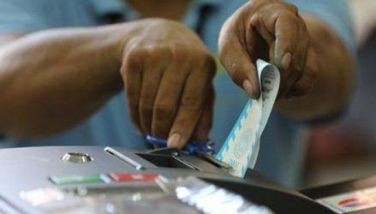Congressmen disagree on Cha-cha procedural rules

MANILA, Philippines — The renewed bid in Congress to amend the 1987 Constitution kicked off this week with an early, if familiar, hurdle as congressmen disagreed on procedures to be followed.
Lawmakers debated on whether or not the House and the Senate should vote jointly or separately on the proposed amendments in restrictive economic provisions in the Charter.?They also disagreed on the issue of whether or not there is a need to convene Congress as a constituent assembly (con-ass) before the process could actually start.
Committee on constitutional amendments chairman Alfredo Garbin Jr. insisted that the two chambers of Congress will vote separately on the proposed amendments as provided in Resolution of Both Houses No. 2 filed by Speaker Lord Allan Velasco.
He explained during the hearing last Wednesday that joint voting in amending the Charter should not undergo a less stringent requirement.?“If we treat an ordinary legislation as ‘voting separately’ in both Houses of Congress, how can we have a less stringent requirement on proposing an amendment to the Constitution?” the AKO Bicol congressman pointed out.
Panel vice chair and Iloilo Rep. Lorenz Defensor agreed with Garbin, saying the democratic process must still be respected.?“Whether we want to speed up the process and succeed, it’s not the success of Congress that is important but the respect of the democratic process and the acceptability of the people. It is important for people to see that the process is right,” he added.
But two veteran lawyers in the House – Albay Rep. Edcel Lagman and Deputy Speaker Rodante Marcoleta – did not agree and argued that members of the House and the Senate should vote jointly.
Citing a Supreme Court ruling in 1967, Lagman explained that if Congress is convened into a constituent assembly, lawmakers would not be sitting as legislators but as constituent members of the assembly.
“Then, voting should not be separate, but it should be joint. Because there is no distinction now between the Senate and the House because senators and the representatives are not acting as legislators but as members of a con-ass,” he explained.
Marcoleta shared this opinion, saying the Constitution did not provide that the vote must be done separately.
“If I were to be asked, I would prefer joint voting because that’s easier. For example, we were able to secure the votes of 3/4 of the members, but in the Senate, they only had 1/4 votes, then our efforts would be futile. Why would we push for change if our counterpart cannot deliver?” he argued.
Lagman believes this issue is justiciable – one that could be raised before the Supreme Court for resolution.
“With respect to the voting requirement or procedure, this will have to reach the Supreme Court. This will have to be resolved by the Supreme Court,” Lagman stressed.
“Most probably, we will not have sufficient time to effectuate any proposed amendments now because definitely this question on voting will have to go back to the Supreme Court and the Supreme Court will have to review the decision in Gonzales versus Comelec,” he warned.
Apart from the issue on joint or separate voting, lawmakers also debated on whether or not there is a need for Congress to convene as a con-ass to formally start the process to amend the Charter.
Garbin announced during the hearing that con-ass has already started when the panel began hearing RBH 2 and there is no need for Congress to convene into a con-ass.
“The Constitution does not provide for the convening of the constituent assembly prior to making proposals for amendments to the Constitution. Neither is there any mention about a constituent assembly in the Rules of the House of Representatives. Once Congress initiates the procedure to propose amendments to the constitution it is deemed to have entered into the exercise of its constituent powers. There is no need for a prior act of organizing itself as a body exercising constituent powers,” he argued.
Another House leader, Deputy Speaker and Cagayan de Oro Rep. Rufus Rodriguez did not agree.
“I have different opinion. I believe that the committee’s work is preparatory and recommendatory. In other words, the committee is not yet the constituent assembly. Because the constituent assembly will be the plenary of the House of Representatives, all of us assembled in the plenary, that is the start of the constituent assembly,” he explained to House reporters in an interview via Zoom.
“In other words, the committee will recommend, just require, just like any other legislation, a majority of the votes to approve, majority of the members who can vote to approve the committee report and recommend to the plenary. So therefore the creation of the con-ass will be required only when we are already going to vote after the deliberations, after we are converted the plenary into con-ass, after the committee report is received by the rules,” stressed Rodriguez, who preceded Garbin as chair of the panel.
While they have differing opinions, the ranking lawmakers agreed that these procedures were not prescribed in the Constitution, which is why Lagman said there is a need for intervention from the Supreme Court.
Senate Minority Leader Franklin Drilon warned yesterday of what he described as early attempts to railroad Charter change following Garbin’s claim that the chamber alone can amend the Constitution.
He stressed that a committee cannot convene itself into a constituent assembly without a concurrent resolution passed separately by the Senate and the House.
“I’ve seen this before. I think Rep. Garbin is laying the basis to claim that the House alone, without the Senate, can propose amendments to the Constitution. That would be unconstitutional,” Drilon said.
Trade Secretary Ramon Lopez said that while the Department of Trade and Industry (DTI) supports the initiative to relax the restrictions on foreign ownership to encourage investors to come to the country, it also notes that this may be better done by pursuing pending bills in Congress instead of amending the Constitution at this time.
“Right now, if we can do it through revision of some laws instead of constitutional amendment, this is what we see as an easier way to do it moving forward,” he said.— Paolo Romero, Louella Desiderio
- Latest
- Trending





























